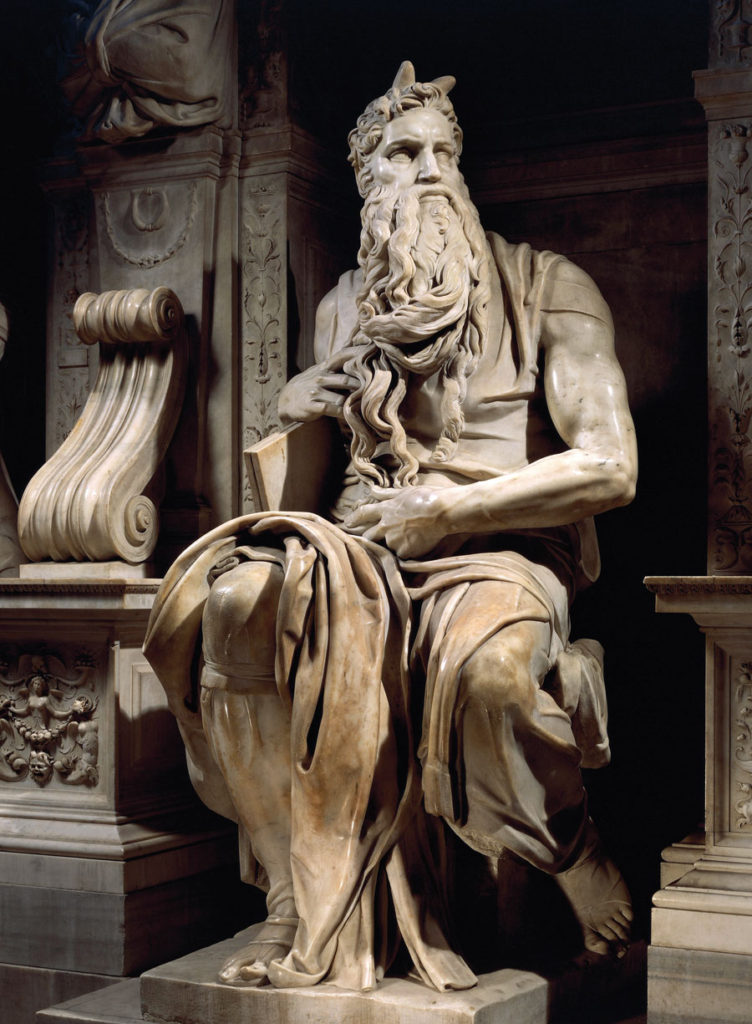
Spiritual Sunday
One of today’s Old Testament readings is Moses receiving the Ten Commandments, which gives me an excuse to share Milton’s account. In the opening lines of Paradise Lost, like Homer and Virgil before him, Milton invokes the muse. His muse, however, is not Calliope, the Greek muse of epic poetry, but God, who dictates Paradise Lost to Milton as He dictated the Law to his “shepherd” Moses atop Mt. Oreb and Mt. Sinai:
Sing Heavenly Muse, that on the secret top
Of Orbe, or of Sinai, didst inspire
That Shepherd, who first taught the chosen Seed,
In the Beginning how the Heaven’s and Earth
Rose out of Chaos…
In the Exodus version, God’s word is accompanied by impressive pyrotechnics:
When all the people witnessed the thunder and lightning, the sound of the trumpet, and the mountain smoking, they were afraid and trembled and stood at a distance, and said to Moses, “You speak to us, and we will listen; but do not let God speak to us, or we will die.” Moses said to the people, “Do not be afraid; for God has come only to test you and to put the fear of him upon you so that you do not sin.”
In Milton’s version, we hear about God dictating the Commandments in Book XII, when the Archangel Michael tells Adam what is to come:
Doubt not but that sin
Will reign among them [the Israelites], as of thee begot;
And therefore was Law given them to evince
Thir natural pravity, by stirring up
Sin against Law to fight…
The reasoning here is a little contorted. Michael is saying that God gave the Israelites clear laws by whch they “can discover sin.” The laws, however, are not enough to counteract human’s natural depravity—in fact the laws actually stir sin up—so that their existence is most effective in getting people to see that something more than law is needed. That something more is Jesus Christ, a far more effective sacrifice than “the blood of bulls and goats”:
…that when they see
Law can discover sin, but not remove,
Save by those shadowy expiations weak,
The blood of bulls and goats, they may conclude
Some blood more precious must be paid for Man…
Although the Law is good in the short run, Michael tells Adam, ultimately it must be superseded by a new covenant of Grace, just as Moses is superseded by Jesus. Instead of coming to God through servile fear of laws, followers will instead embrace God with freely offered faith. Servile fear will give way to filial respect and love:
So Law appears imperfect, and but given
With purpose to resign them in full time
Up to a better Covenant, disciplined
From shadowy Types to Truth, from Flesh to Spirit,
From imposition of strict Laws, to free
Acceptance of large Grace, from servile fear
To filial, works of Law to works of Faith.
In other words, no longer will thunder and lightning be required. Just internal guidance from the Holy Spirit.
Dostoevsky’s Grand Inquisitor, who argues that miracles and other dramatic shows are required to command faith, would not agree. Milton, however, has more faith in the human heart.

